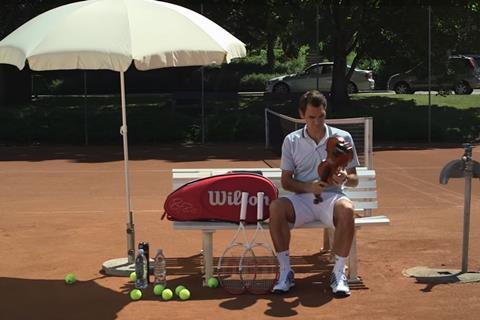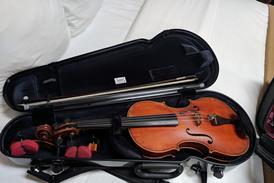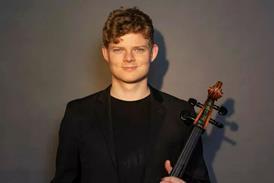String players often shy away from sports for fear of damaging themselves, but the benefits far outweigh the dangers, says cellist and tennis enthusiast Maria Kliegel

Combining music and sport has always been frowned on. Players are scared to do sports because their string teachers have told them not to, and they miss out on the many benefits that physical activity offers. In my view, everyone should be encouraged to try sport. Sitting in your practice room repeating the same strenuous body motions for hours, weeks and decades, cannot be healthy or enjoyable.
A string teacher might tell a student or parent that sport is bad, that it gives you tennis elbow or other injuries. Even though the teacher has probably never tried anything themselves and is only delivering what they heard from their teacher, the young player believes it. Meanwhile, at school the teachers accept musicians as exceptional: they go to competitions and lessons; they travel to concerts and masterclasses; they’re scared about their fingers. Staff don’t want to take responsibility, so they excuse the children from sport, without realising it’s good for them.

I always did athletics and gymnastics at school, but when I started studying cello seriously, people told me, ‘Don’t do those sports – you’ll injure your wrists,’ and I believed them without question, so I stopped. I was 30 when I started questioning. I used to watch my husband play tennis, and after a couple of years of standing passively at the side of the court talking to the other wives about children and cooking, I got bored. I was eager to get active and try tennis myself, so I took some lessons, and had incredible fun running around on the court in the fresh air, learning something completely new, and getting exhausted.
I discovered how good it is to find another field, to escape from always focusing on one thing. And there’s so much in sport that can be put back into music. You learn about reflexes, how to breathe, judge speed, anticipate, react. It’s great to be learning again and it gives you much more understanding of students who say, ‘I know what to do, but I can’t do it.’
Playing sport helps you to get to know your body: how muscles, tendons and ligaments work, how to feel or create tension and relaxation, and how injuries heal. Many musicians don’t know about these processes, which is why they are scared to face them. When they have a playing injury, they often panic. They cannot distinguish whether it’s an injury or a sore muscle, or if they need to go to the doctor or not. You have to be intelligent about these things, because they happen – so when they do, it’s important to understand your body. There is an imbalance in how musicians function perfectly in a high-tech way with certain parts of their bodies, but let other parts get stunted.
Musicians often have no idea how much joy there is in being exhausted from tired muscles, falling asleep easily because they’re physically tired, feeling proud of achievements besides music. Sport helps you learn your limits and accept who you are. Just like chamber music, it is a social thing.
Musicians spend so many hours on their own, practising, deciding whether a note is good or not. If you have an opponent or you play in a team, you are part of something bigger. You all have the same importance, and that’s a great lesson.

Guarneri Quartet founding member Michael Tree on tennis doubles
I have always considered tennis doubles to be an extension of string quartet playing. You have four players, with far less at stake, and I can only imagine Beethoven’s behaviour if he double-faulted during the final set.
Like us musicians, sportsmen and women work with their bodies and are subject to a great deal of criticism, sports writers being no kinder than some music critics. What we do for a living, on the violin or viola, is physically incredibly awkward – holding an instrument under your chin for two or three hours in public is a terribly unnatural way of life.
From the June 2014 issue of The Strad
You also learn about the relationship between your soul, your body and the thing you have in your hand, and that’s the same whether it’s a golf club, a tennis racket or a bow. You find out about joy and misery, winning and losing, and this can be measured in numbers rather than being subjective, like music.
Of course, certain games are not good for string players: volleyball, basketball or any sport where you have to catch a ball in your hands. And there are dangers if you overdo it, or do a lot for a short time and then nothing for three months. You should do your sports on a regular basis, just as you practise your instrument. And it’s important to have a coach so you don’t do anything wrong. Bad habits, in instrumental play or in sports, are difficult to get rid of and always cause problems later.
We only live once and we had better stay healthy our whole lives and enjoy ourselves. We must find a good balance between work and family life. Some people think that sport and art don’t belong together, but find out for yourself. Try different kinds of sports, and if you don’t find any joy in any of them that work for you, there’s no reason to feel ashamed. But consider the Latin phrase, ‘Mens sana in corpore sano’: a healthy mind is in a healthy body.
Interview by Ariane Todes. First published in the October 2012 issue of The Strad


































No comments yet